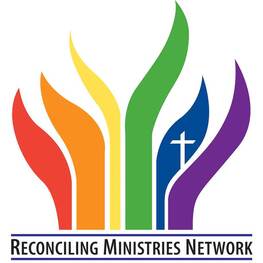 Dr. Thomas Morton is a member of Swarthmore United Methodist Church and Chair of the Administrative Council. He's also a visiting assistant professor of architectural history at Bryn Mawr College. The following reflection was written to address the 2016 General and Jurisdictional Conference delegates during an April "listening session" in the Eastern PA conference. Good morning and thank you very much for having these listening sessions. I wish to speak about one issue, that is, the full inclusion of the LGBTQ community within the United Methodist Church. As we all know, the Book of Discipline states “The practice of homosexuality is incompatible with Christian teaching.” I am a professor and a national award-winning educator, and as such, my ears perk up whenever I hear the word, “teaching.” Let’s analyze this sentence from the Book of Discipline. It is striking that the policy does not say that the practice of homosexuality is incompatible with the Bible. It only states that it is incompatible with Christian teaching. This in turn raises three important points. Number one: teaching, in general, is not static; it is dynamic and subject to constant change. Often it is upon further reflection or the introduction of new evidence that we change the manner and/or content of what we teach. Number two: the people who crafted this sentence for the Book of Discipline, realized that homosexuality is not against the Bible. If they had believed that it was against the Bible, there is no doubt in my mind that they would have clearly stated this. Let’s remember there are only six references to same sex relations in the Bible and none of them address loving, monogamous, same sex relationships. Matthew Vines has written eloquently about this in his book, God and the Gay Christian. To put these six references in context: there are over 325 references to slavery and only two speak against it; this fact is cited by Wesley Granberg-Michaelson (in James Brownson’s Bible, Gender, Sexuality) and others. If the church can overcome 325 references to slavery in the Bible and now be in opposition to slavery, then there should be no problems whatsoever moving beyond six passages in the Bible that are, sadly, often misinterpreted and used to discriminate against LGBTQ persons. Number three: let us remember that the United Methodist Church has the Wesleyan Quadrilateral with Scripture, Reason, Experience, and Tradition. It was with reason and experience that the UMC moved against slavery. It was with reason and experience that the UMC allowed women to be pastors. It is with reason and experience that the United Methodist Church should be fully inclusive to members of the LGBTQ community. I wish to conclude with two observations from my church, Swarthmore United Methodist: First, this calendar year I have tracked the number of people, 50 and under, who attend our service. On average we only have seven people per Sunday who are under the age of 50. People have left the church and have taken their talents, time, and tithes with them, often because the UMC is not inclusive. There used to be a thriving youth program with dozens of youth; none of those children, who are now all adults, have chosen to remain in the church. None. Second, my church is within easy walking distance of every single dormitory on the Swarthmore College campus. Do you wish to guess how many students regularly attend our worship service? The embarrassing answer is that not one single student regularly attends our church’s worship service. Not a single student. There are students on campus who have grown up in Methodist churches around the country, and I have spoken to many of them. Truth be told, the Church’s policies regarding members of the LGBTQ community always come up in conversation. Church policies, specifically relating to the full inclusion of the LGBTQ community, need to change immediately. In conclusion, I politely beg that when you attend the upcoming General and Jurisdictional Conferences, you vote to make the United Methodist Church inclusive – in all of its policies – for the LGBTQ community. It is not an exaggeration to state that the future and even the mere existence of the United Methodist Church in our communities are at stake. Thank you very much for listening to me.
2 Comments
|
RUM-EPA BlogThis page includes written testimonials, articles, and podcast interviews with reconciling United Methodists in Eastern PA and beyond. Archives
September 2016
Categories |
 RSS Feed
RSS Feed
